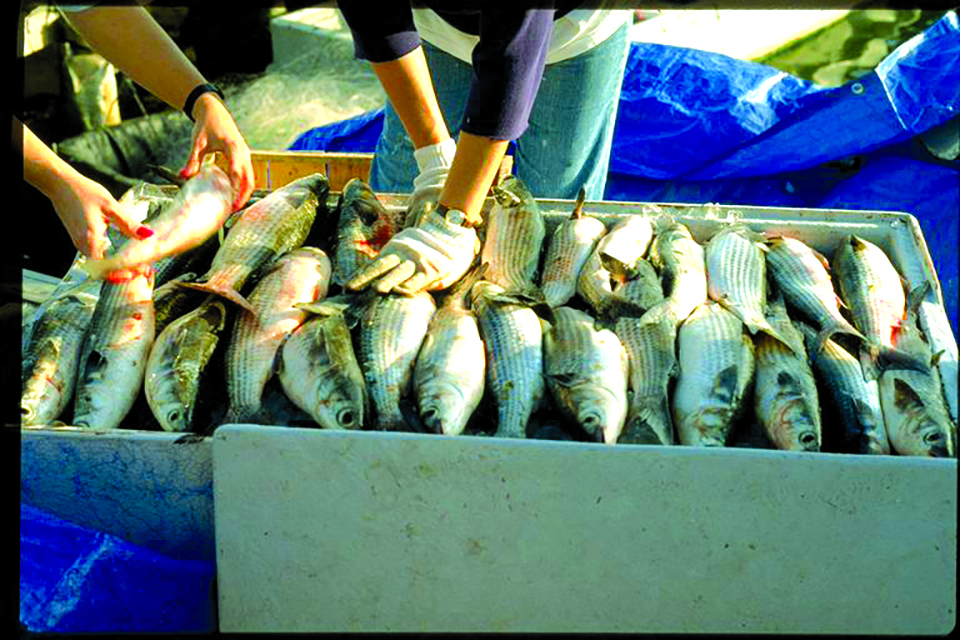Florida Sportsman publisher Karl Wickstrom, who died in 2018, is recognized as the person who did the most to achieve the net ban in Florida. (Read the full feature by author Robert Fritchey from NF's March 2020 issue.)
“You could say it became an obsession,” he later told a Philadelphia Inquirer reporter, of his antinetting crusade. “I just had an image of what it would be like with fish stocks restored, to see families out there catching a lot of fish,” said Wickstrom, admitting that he had devoted more than one million words in his popular magazine to promoting the net ban.
For Wickstrom, it was wrong for a recreational fisherman to be limited to just five fish while his commercial fishing neighbor could catch “a ton,” on no other basis than “so-called tradition.”
He was instrumental in founding the Florida chapter of the national Coastal Conservation Association, in 1985, which displaced the state-level Florida League of Anglers.
Shortly after CCA’s arrival in Florida, Jack Brawner, then-southeast regional director of NMFS, organized a recreational fishing steering committee to improve communications between his agency and recreational fishermen. Committee members included Texan Walter Fondren — oil heir and CCA’s chairman of the board — and Alex Jernigan, co-founder of the Florida Conservation Association, and a partner in the state’s largest civil engineering firm, Miami-based Post, Buckley, Schuh and Jernigan.
Citrus County Chronicle outdoor columnist and National Fisherman reporter Russ Fee attended the 1985 meeting, to get a feel for how the newly formed organization might perform by observing these “anointed leaders of the saltwater fishing constituencies of Texas and Florida.”
In his follow-up column, “Vindictive ‘leaders’ will not find the answers to fisheries debate,” he expressed his disappointment.
“[In past columns,] I have expressed the hope that FCA would speak in a knowledgeable and reasoned way in the policy councils of this state. Those hopes have been dashed. Fondren proved to be a voice of condemnation, rather than of moderation. He was obsessed with what he views as the evil inherent in the country’s commercial fishing industry, in general, and netters, in particular. He admits to no similar excesses on the part of recreational anglers.
“And Jernigan, who is Fondren’s Florida emissary and who was once chairman of the Gulf of Mexico Fishery Management Council (and so should have some touch with reality) topped his mentor by proposing that all finfish that swim in the Gulf of Mexico, except for menhaden, be given gamefish status and removed from commerce.
“It was not the audacity of the proposal that disappointed me; it was its unfairness. It was what it revealed about the man and, through him, the likely future polices of the Florida Conservation Association.”
Fee’s instincts were soon proved correct: Three years later, when the federal government’s data suggested that too many redfish were being caught inshore by both sport and commercial fishermen, the Florida Conservation Association pressured state managers to exclude commercial harvesters and seafood consumers from the fishery while allowing sportsmen to continue fishing.
When Fee wrote his piece, “sustainable fisheries” hadn’t yet become a national catch phrase, but the old-fashioned outdoor writer knew that the long-term welfare of the state’s fisheries hinged on more than simply bullying working fishermen out of existence.
“We need philosophers who understand that the future of our marine resources rests with the resurrection of habitat and halting of the environmental pollution and contamination that is turning our estuaries into leprosariums and our food fish into poison vectors,” he wrote. “Instead, we get political hacks — ward heelers, if you will — who play the game for short term stakes and the thrill of combat.”







